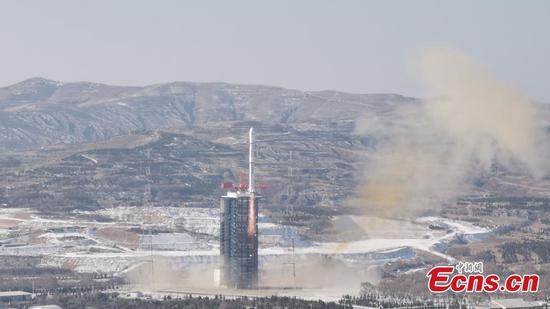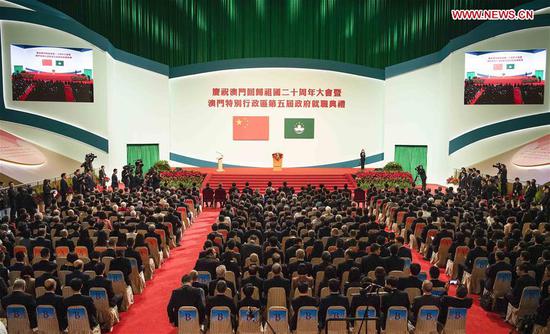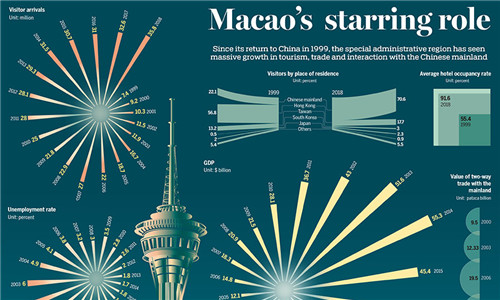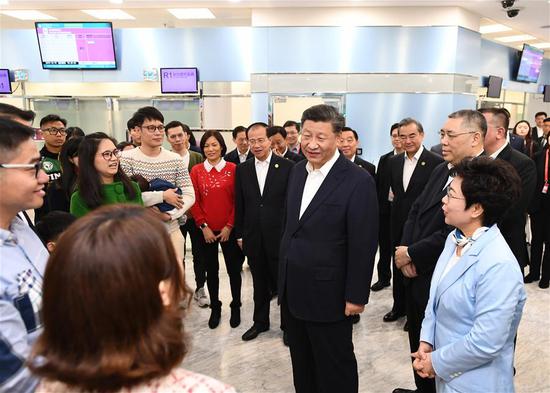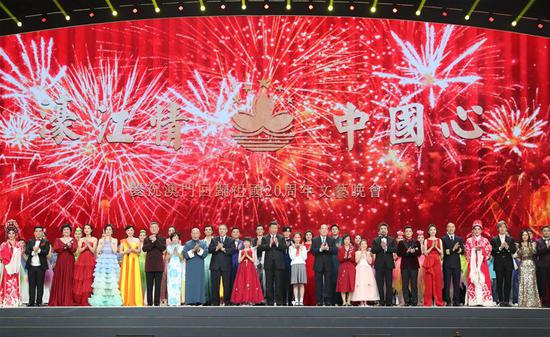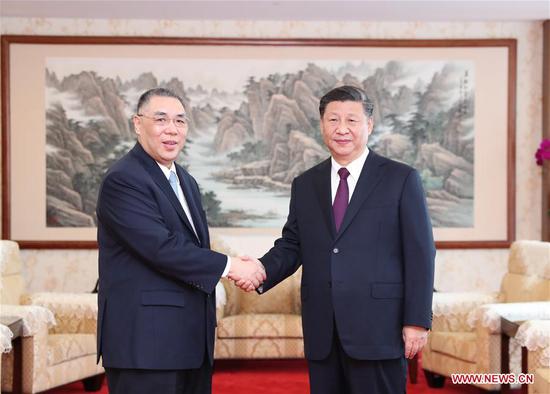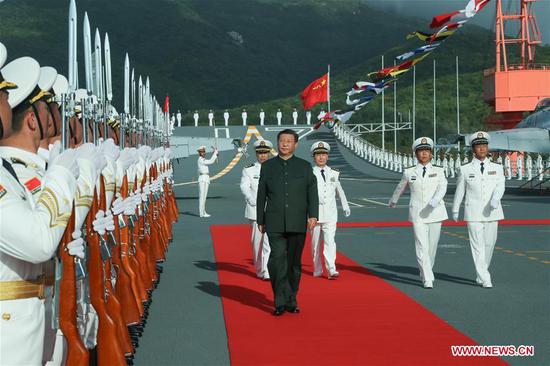China strongly opposed the United States including clauses that interfere with China's domestic affairs in its 2020 National Defense Authorization Act signed into law on Friday, You Wenze, a spokesman for the Foreign Affairs Committee of the National People's Congress said on Saturday.
The $738 billion defense act includes items that support the protests in Hong Kong, improve Taiwan's defense capabilities through extensive military exchanges and arms sales, and require the compilation of regular in-depth reports about the conditions of Muslim minorities in the Xinjiang Uygur autonomous region.
You called the clauses unfounded and biased, and said they constitute blatant interference in China's domestic affairs, Xinhua News Agency reported. The signing of the act had led China to express its strong dissatisfaction and adamant objections, he added.
The Taiwan-related content of the act seriously violated the one-China principle as well as the three joint communiques between China and the U.S., and also severely damaged China-U.S. relations and peace and stability in the Taiwan Straits, You said.
The Taiwan issue is China's domestic affair, and the nation cannot allow interference from foreign forces, he added.
As for Hong Kong, You said a series of violent crimes had undermined public security and order and seriously challenged the rule of law and the bottom line of the "one country, two systems" principle.
Violence was violence, and no demands could be excuses for extreme violence, You said. The U.S. attempting to interfere in other countries' domestic affairs under the pretense of so-called democracy and human rights would be in vain, he said.
On Xinjiang's affairs, You said the issues had never been about ethnicity or religion, but about de-radicalization and fighting terrorism. The U.S. was also a victim of terrorism and should have supported China's anti-terrorism measures instead of slandering China's efforts, he added.
You strongly urged the U.S. to abandon its cold-war mentality and hegemonic logic, stop interfering in China's domestic affairs, immediately take concrete actions to mitigate the negative impact produced by the act and maintain the overall big picture of China-U.S. relations.
The new defense act authorizes, in part, $635 billion in base discretionary funds for the U.S. Department of Defense, $71.5 billion in overseas contingency operations and $23.1 billion for nuclear programs at the U.S. Department of Energy.
It increased U.S. military spending by about $20 billion, or about 2.8 percent year-on-year, and features the largest pay raise for military personnel in a decade, money to establish a space force, and measures against Russia, Turkey, the Democratic People's Republic of Korea and Iran.
Li Haidong, a professor of U.S. studies at China Foreign Affairs University, said negative clauses involving China were common in the annual U.S. defense bill, but this year the items were more clear, detailed and operable.
"The NDAA is a part of a string of bills signed by the Trump administration designed to be tough on China, and from the trend we can see that the U.S.' hawkish legislative framework against China is being completed and growing tighter," he said. "This means the diplomatic operating space to improve China-U.S. relations is narrowing."
Moreover, the new act included clauses on 5G technology and the space force, meaning the U.S. was planning for military competition on new fronts such as cybersecurity and space.
"China, Russia and other countries have stressed that space activities should be for peaceful purposes," Li said. "The U.S. taking unilateral actions to ensure its own absolute security will likely lead to friction and even conflicts between big nations."












